Recommended tours
Review & Earn Travel Money
At TripsPoint you have endless possibilities to earn TripsPoint Money - this is your Travel Money your can use to book you next tours and activities everywhere you go.
Here's Space For Everyone
New tours
We stand together! Support Ukraine against Russian aggression!

Stay connected with TripsPoint World Travel News to get breaking news
and reports about what is happening in the world of travel right now!
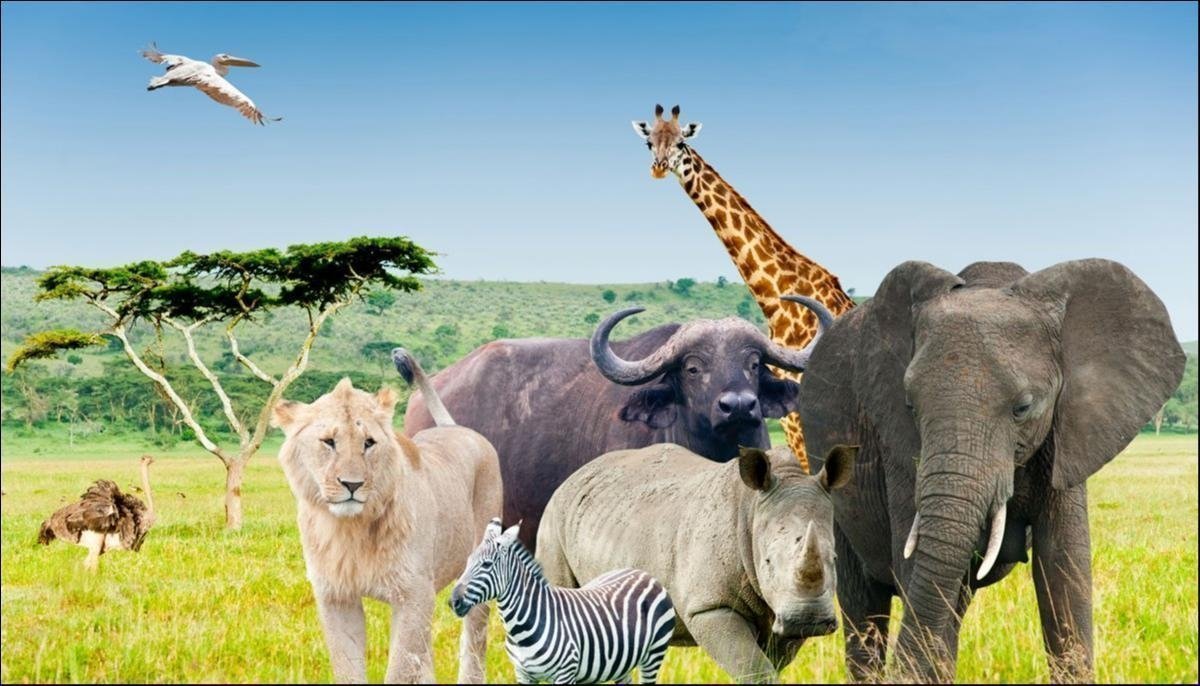
Is an African Safari Safe? Facts You Must Know!
An African safari is one of the biggest dreams for the majority of travelers. They are the ultimate in wildlife spotting, giving visitors the chance to see some of the most magnificent creatures in the world in their natural habitat, as well as getting a glimpse into the culture of these wonderful nations. But for the traveler who is not so experienced, or even those not accustomed to traveling in such rural areas, an African safari can be quite a daunting prospect. Being in such desolate regions surrounded by potentially dangerous wild animals could be seen to be quite a risky option for the more nervous traveler. But is an African safari really that risky? Or are there no dangers involved whatsoever? Even if there are possible risks, surely they are worth it for the trip of a lifetime? Here we will lay out the potential risks when taking an African safari and why it is still a trip which should be added to all travelers’ bucket lists.
Africa as a continent receives over 30 million visitors every year, of which 15% travel purely for tourism reasons. An African safari forms a part of many of these trips and travelers certainly have a lot of choices when it comes to safari destinations. It is hard to determine the best place to take an African safari – there are just so many to choose from – but the favorites among travelers are East, Central and Southern Africa. East Africa is home to Kenya and Tanzania, premier destinations for those looking for a safari adventure. The main reason for this is the wildebeest migration between the two countries; the best places to see this are the Maasai Mara in Kenya and the Serengeti National Park in Tanzania. The area also gives visitors the chance to see the imposing Mount Kilimanjaro.
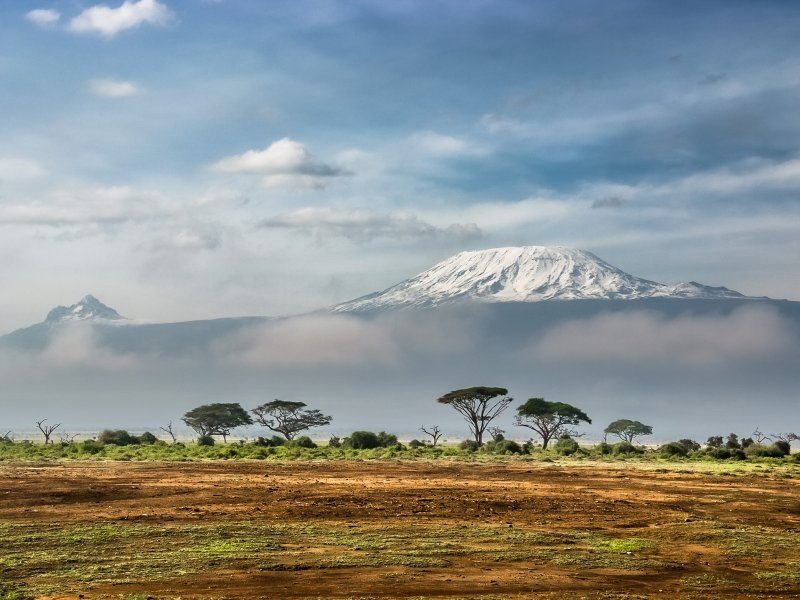
Central Africa includes destinations such as Rwanda, Uganda, the Central African Republic, and the Democratic Republic of Congo. All of these countries are fantastic places to see the mighty mountain gorilla, a particularly interesting animal for travelers to see due to its status as an endangered species. Top destinations include Volcanoes National Park in Rwanda, Virunga National Park in the DRC and Mgahinga Gorilla National Park in Uganda.
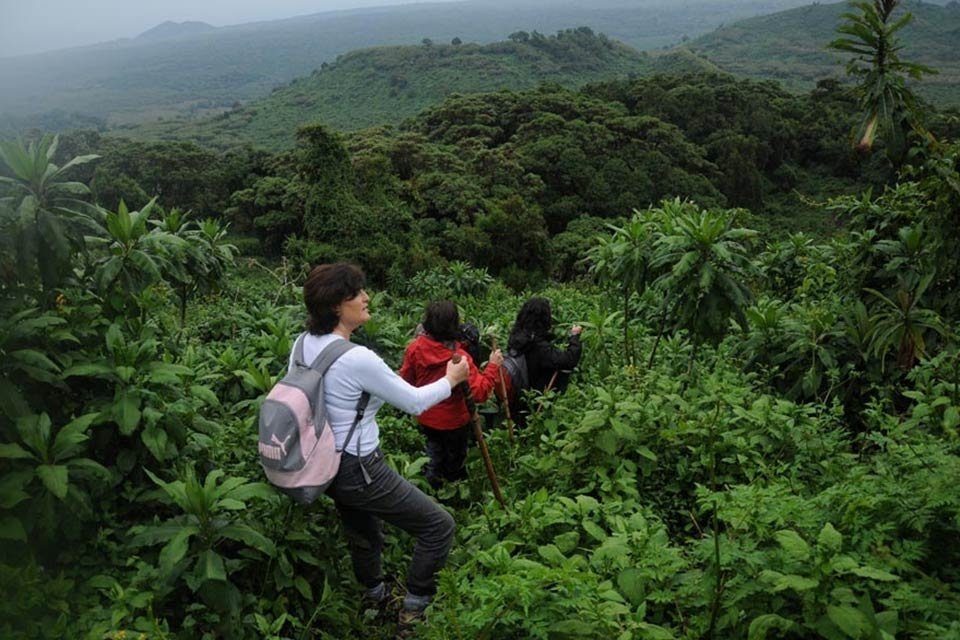
Southern Africa attracts many travelers for an African safari because of its huge variety of environments and wildlife. Quite a few countries offer fantastic African safari opportunities: Botswana is home to Moremi Game Reserve and Chobe National Park, of which the latter is home to the largest concentration of African elephants in the entire world; Kruger National Park in South Africa has a vast array of animals to spot; and Etosha National Park in Namibia gives visitors the chance to see the endangered black rhino.
Central Africa is a region particularly known for its dangers for tourists. A mix of civil wars and political unrest have made the countries in this area a risky choice for travelers. However, for some of the most adventurous and foolhardy, the area makes an exciting trip and there are still plenty who choose an African safari in this part of the continent despite the risks. South Africa and East Africa are also known to have their troubles, which can make an African safari quite off-putting.
In terms of safety, terrorism is one of the biggest issues when traveling in Africa. Several terrorist attacks have taken place throughout the continent in the last couple of decades, and it is usually the main thing which travelers are warned about when they are considering booking a holiday to the continent.
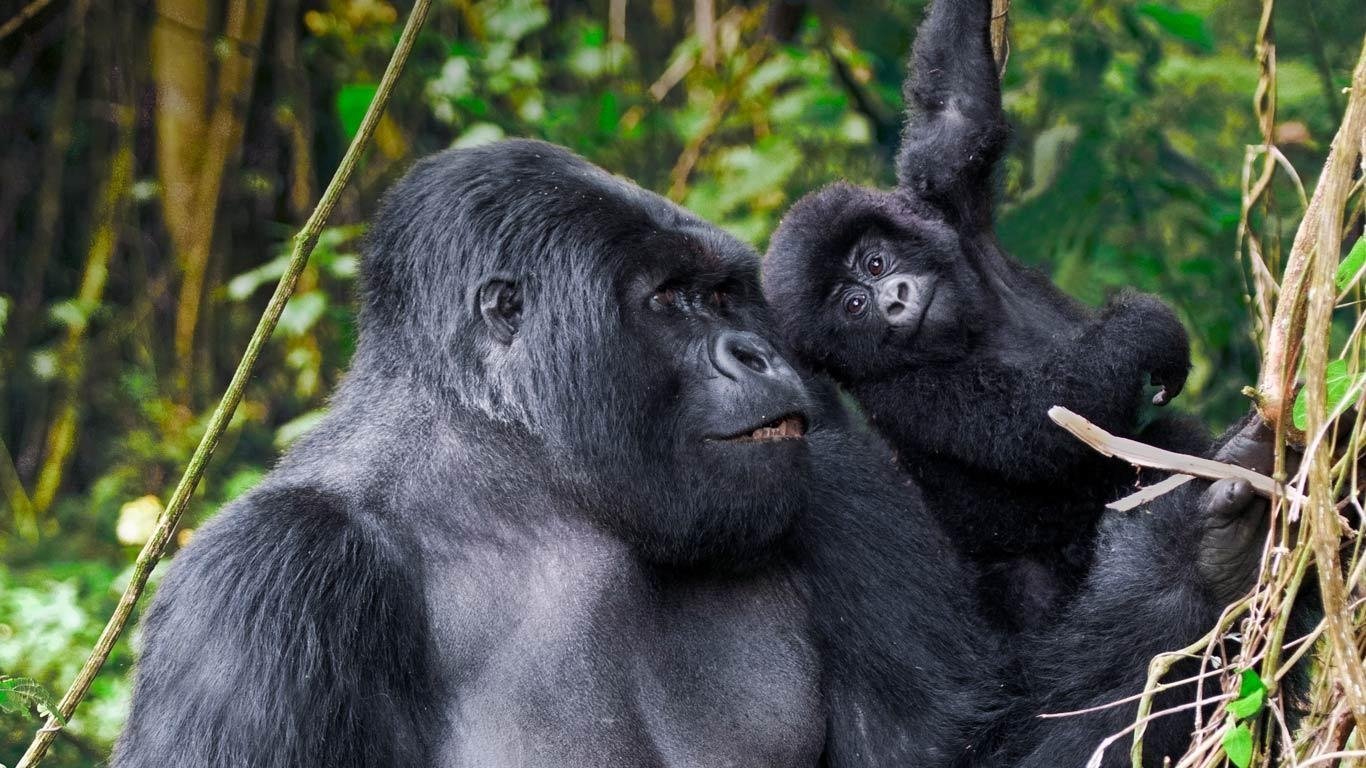
That being said, the fact that terrorism is a potential problem in Africa actually does not make it any different from other destinations around the globe. Take London, for example. The capital of the UK is one of the most popular tourist destinations in the world – it received nearly 20 million tourists in 2018, making it the second most visited city in the world that year – and for good reason; it is a city brimming full of culture, history and plenty of fun attractions. However, it is also a city which has also ranked pretty highly on lists of the most dangerous cities in Europe in the recent past. The reason? Because of the number of terrorist attacks which have taken place in the capital in the last few years, as well as the amount of petty crime that takes place throughout the city. These terrorist attacks do not seem to have put travelers off heading to London, so why should it be the same for Africa? It all boils down to people’s perceptions of destinations. A rich, well-developed city like London will always seem safer in people’s minds than a poorer and less developed region, even if statistics say otherwise. But even though statistics might say there is a risk of terrorism in both Africa and London, the likelihood of anything happening to tourists while holidaying there is exceptionally low.
South Africa, in particular, has a reputation for a high level of crime, including rape and murder. Travelers are often advised not to carry valuables with them, street crime is also an issue in many parts, and visitors are warned that banditry is rife in certain areas. Scams are also prolific, and much literature has been written on how to prevent being taken in by them.
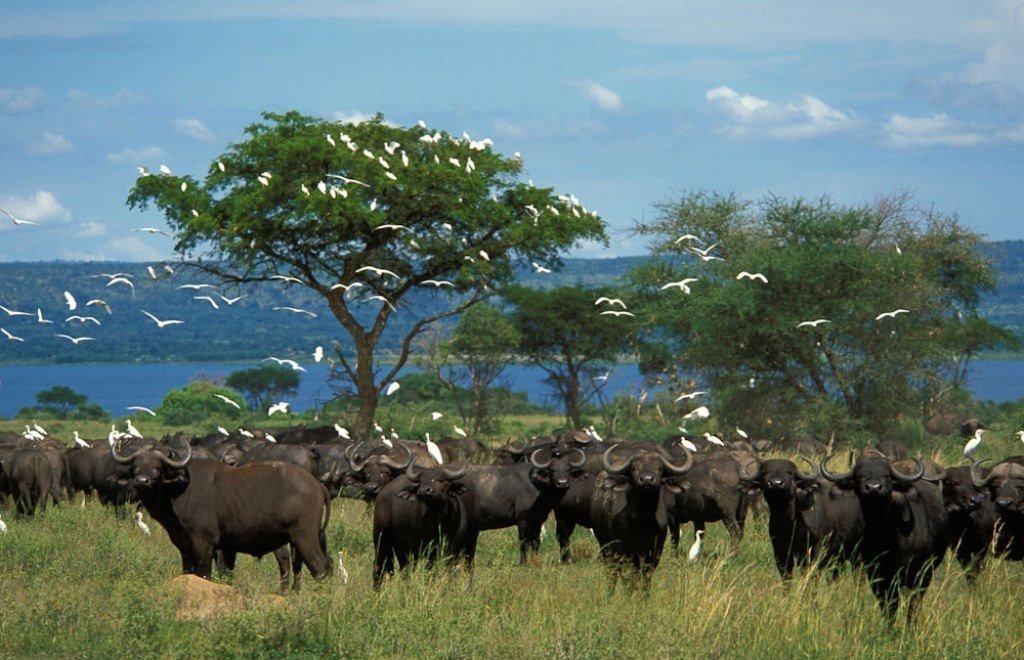
Again, like with terrorism, although these problems are legitimate causes for concern, there is no reason why traveling to Africa should be considered more of a danger than to any other destination around the world. All countries have their issues with crime and many around the world have their own versions of the scams which take place in Africa. So crime in itself should not be a reason not to book an African safari.
Of course, the main reason why people head off on an African safari is to see the amazing wildlife the continent has to offer. But surely being in such close proximity with animals such as lions, rhinos, cheetahs, and hyenas are a risk all of its own? And it is not just the big animals that pose a danger. There are also all kinds of venomous and poisonous creatures to watch out for, such as snakes and spiders. So is putting oneself in a situation where contact with these dangerous beasts is likely worth the risk?
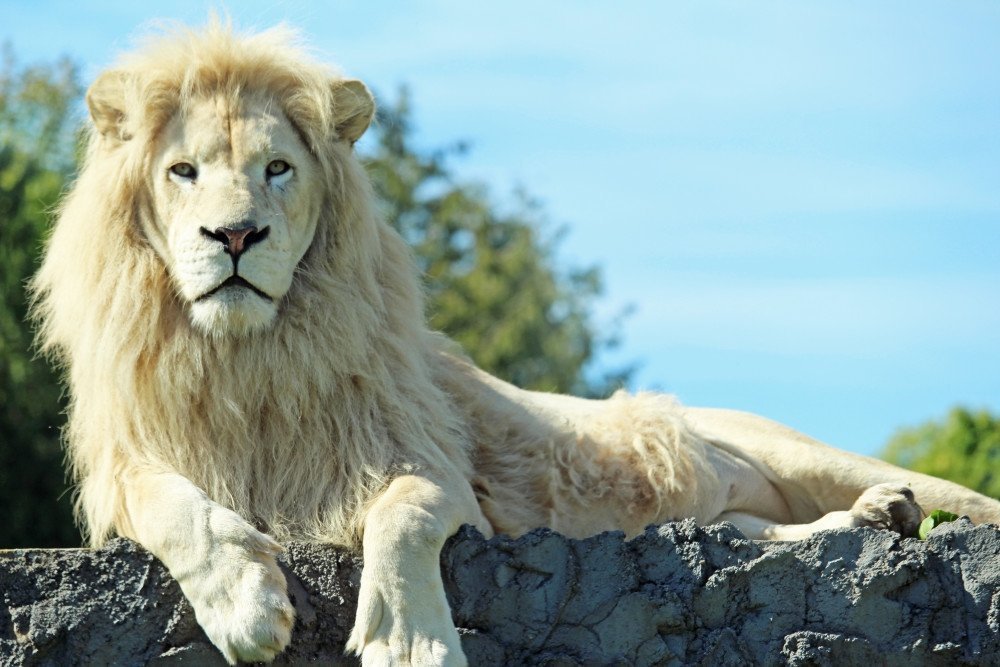
While it is true that Africa is home to lots of potentially dangerous animals, the likelihood of coming into direct contact with them is very low indeed. When it comes to spiders and snakes, this fear is similar to the fear people have about coming face-to-face with them in Australia. In reality, spiders and snakes are more often than not pretty timid creatures who tend to shy away from humans; if one imagines how terrified one might be when suddenly coming across a creature far, far bigger than oneself, it is easy to understand how a snake or spider would feel when coming across a human. The only way a spider or snake would attack a human is if it was extremely scared or if it was taken by surprise. It is more likely to run – or sliver – away if it senses a human is nearby.
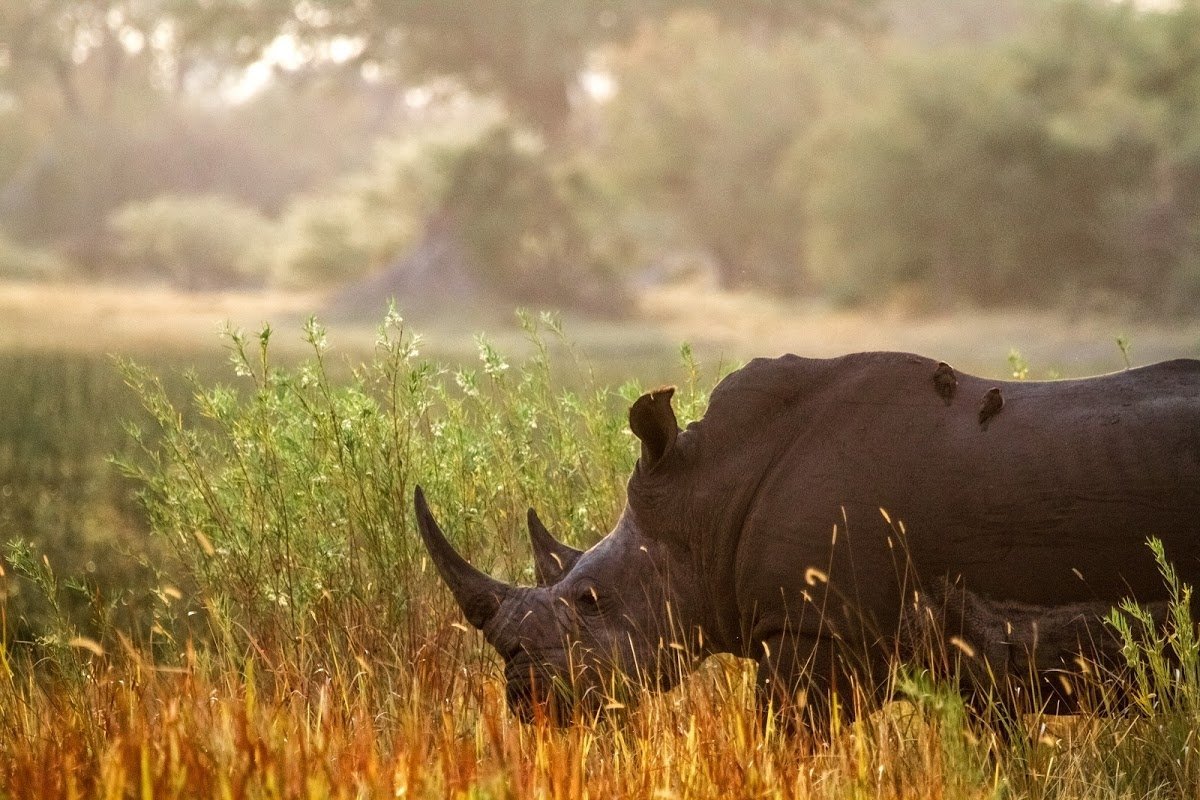
When it comes to the big animals, we know that these are potentially dangerous. The hippo is well-known as the deadliest land animal in the world, responsible for approximately 500 deaths per year in Africa. They are very aggressive creatures and the sort who will not have any qualms about trampling or biting humans, or capsizing boats to get people out of their way. Crocodiles are similarly dangerous. Although they do not specifically seek out humans as prey, they are opportunistic hunters, so if someone happens to stray into their path, it could be potentially fatal. Several hundred crocodile attacks on humans occur every year in Africa alone, with between one third and a half resulting in the death of the victim. As members of the cat family, we all know the damage that can be done by the jaws of lions, leopards, and cheetahs.
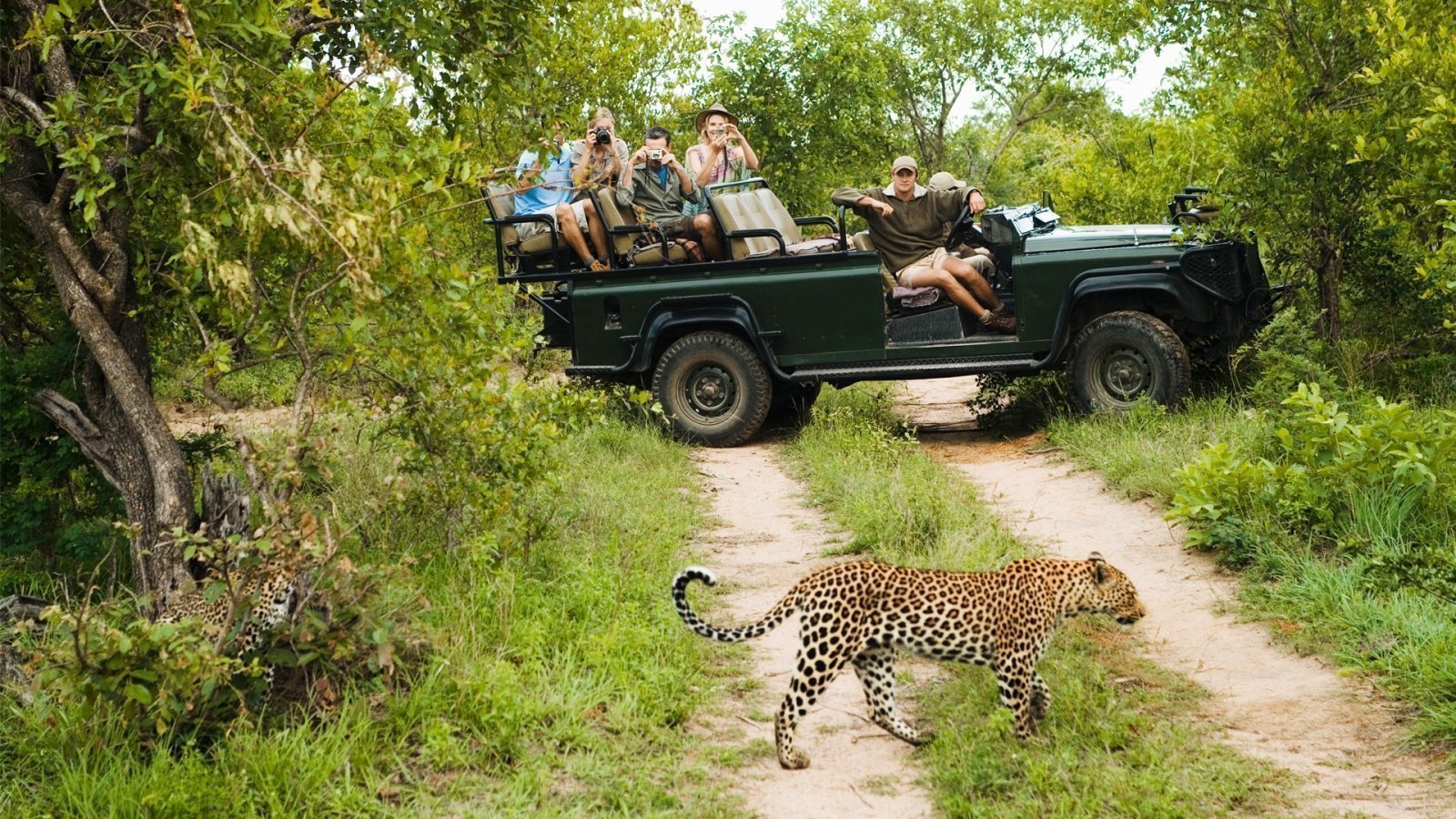
But what are the chances of actually being attacked by one of these animals? As you can see above, 500 deaths a year by hippo attack is a relatively small figure. There may be higher numbers for crocodile attacks, but these tend to happen more in small communities, not on regular safari routes. As for attacks by big cats, these are extremely rare. In fact, the attacks which do take place on an African safari are far more likely to be caused by visitors not obeying park rules by getting out of their vehicles and trying to engage directly with the animals. So as long as you follow your guide’s instructions and stay within your vehicle while you are out wildlife spotting, no harm should come to you.
When heading out on an African safari, travelers have many options when it comes to accommodation. These range from basic tents in the wilderness to luxury cabins. Occasionally stories are reported in the news about visitors being attacked by animals in their tents and other accommodation. In the rare cases that animals do enter African safari accommodation, this is often due to the behavior of safari travelers rather than the animals themselves. Wild animals are usually scared of humans; they will go out of their way to avoid direct contact. However, it is possible for them to become habituated – that is, they have become accustomed to humans through various interactions. The biggest interaction that makes an animal become habituated is feeding. Many visitors flout the rules and feed the wild animals food, such as scraps of meat and bones from an evening meal which they throw out to the animals. This leads to the animals associating humans with food and potentially may mean that they enter accommodation in search of it. The majority of these instances usually involve monkeys and baboons, which are uncommon, to begin with, and instances involving other animals such as leopards and lions are even rarer.
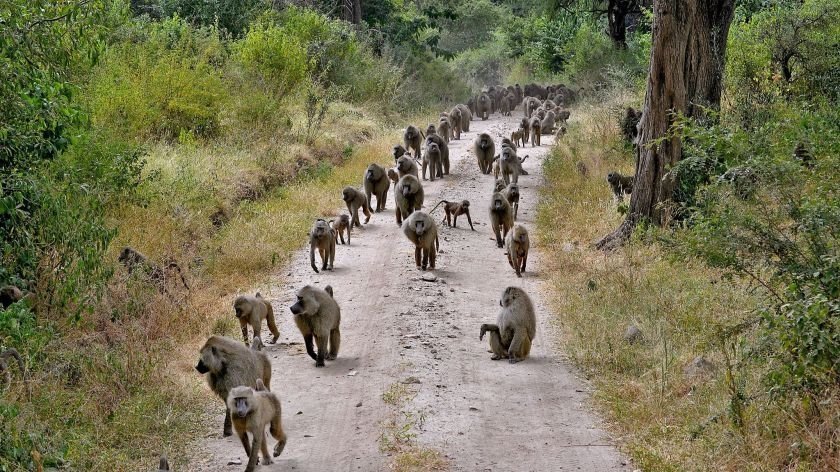
If these kinds of stories make people nervous about taking an African safari, it is completely understandable. However, it is worth noting that these stories tend to make the news purely because they do not happen that often. They are extremely rare situations and the vast majority of visitors who go on an African safari do not come into such close contact with wild animals. If a traveler is concerned regarding this issue, it is advisable that they choose an African safari that uses accommodation with strict rules on visitors not feeding animals. This will reduce the risk of animals entering the camp’s accommodation.
While a lot of the creatures it is possible to come into contact with have been mentioned in the previous section, there is one which is actually responsible for far, far more deaths and is believed to have killed more people than anything else in the history of humanity. That creature is the mosquito. Mosquitoes carry a number of diseases, notably malaria, dengue fever, encephalitis, and yellow fever. Malaria alone affects 200 million people per year, with 600,000 of those resulting in death.
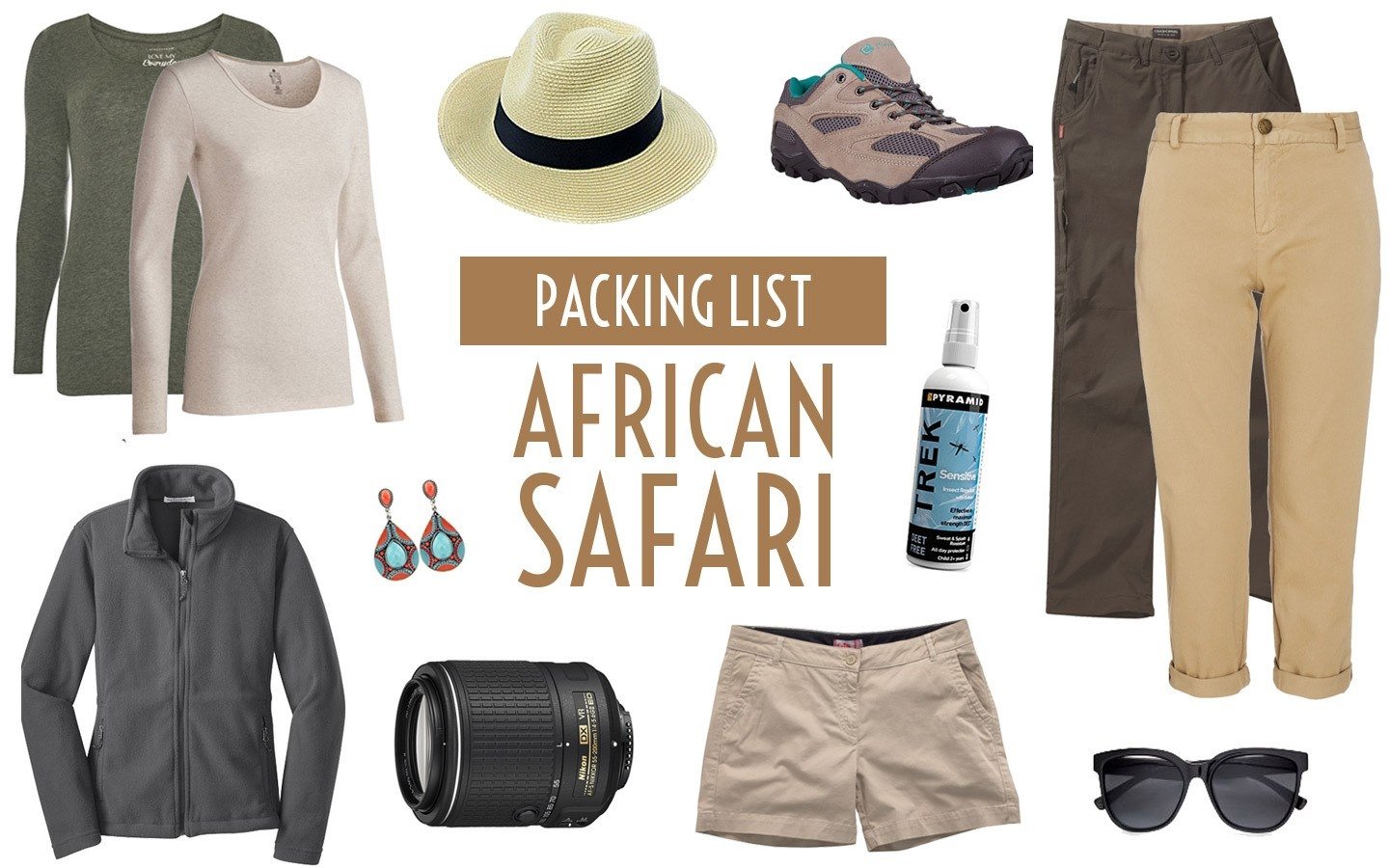
Another insect which is known to cause disease in Africa is the tsetse fly. It carries the parasite which causes African trypanosomiasis, better known as African sleeping sickness, a serious disease with symptoms such as headaches, fever and joint pain which is swiftly followed by vomiting, brain swelling and problems sleeping. It is estimated that between 20,000 and 30,000 people are infected with the parasite every year, resulting in approximately 10,000 deaths. Other diseases which are prevalent in many parts of Africa include cholera, rabies, and hepatitis.
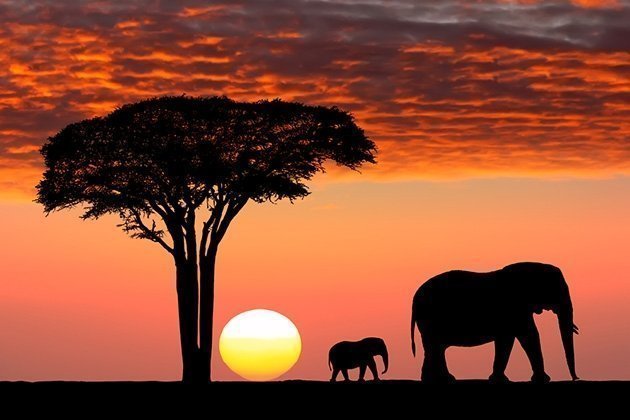
These diseases are huge problems and are not an issue that should be taken lightly. However, there are things travelers can do to protect themselves. One of these is to use insect repellent and mosquito nets to reduce their chances of getting bitten. Another is to take an African safari during the winter months when the insects lie dormant. Vaccinations are also important and it is vital that travelers seek medical advice and receive any appropriate inoculations before they set off on their African safari. This way you can limit the risk of contracting any nasty diseases.
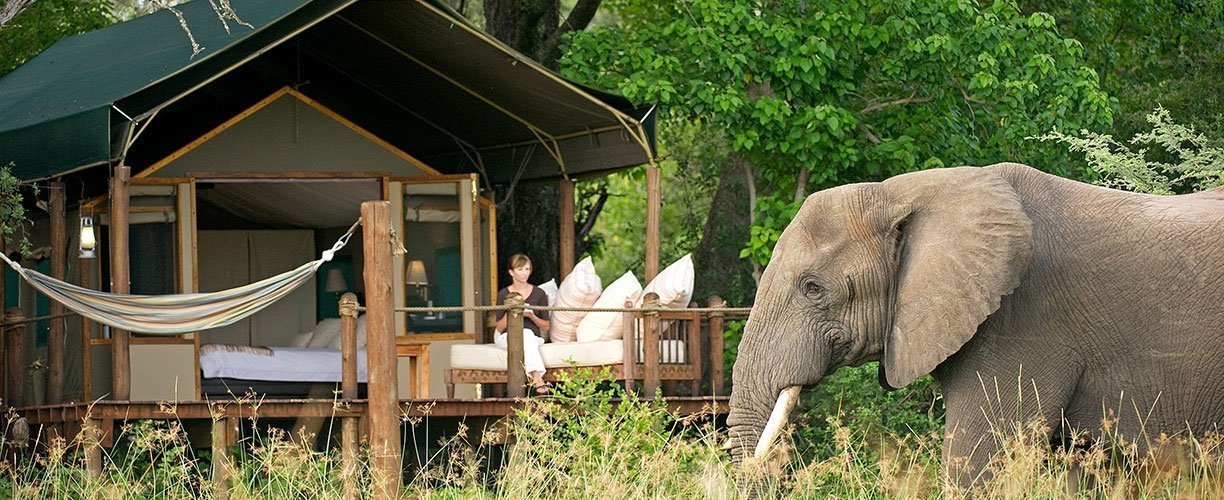
However, when traveling on an African safari, the health problem which visitors are far more likely to suffer from is the one that affects millions of travelers around the world every year – traveler’s diarrhea. To help overcome this problem, travelers should drink plenty of fluids and carry electrolyte sachets to prevent dehydration.
As everyone knows, Africa is a hot continent. The sun and heat can be dangerous aspects of traveling in themselves; we all know the dangers of developing skin cancer, and overexposure to the sun can also result in more minor – but still uncomfortable – conditions such as sunstroke. Of course, the sun can be a problem for some people, but it should be no more of a problem than when traveling to other countries which receive lots of sun and have high temperatures. The important thing for travelers to remember is to use lots of sunscreens and drink lots of water to stay hydrated.
The vast majority of African safaris take place with nothing bad or dangerous occurring. However, there are many things travelers can do to make sure their African safari is as trouble-free as possible. These are the most important things for travelers to remember:
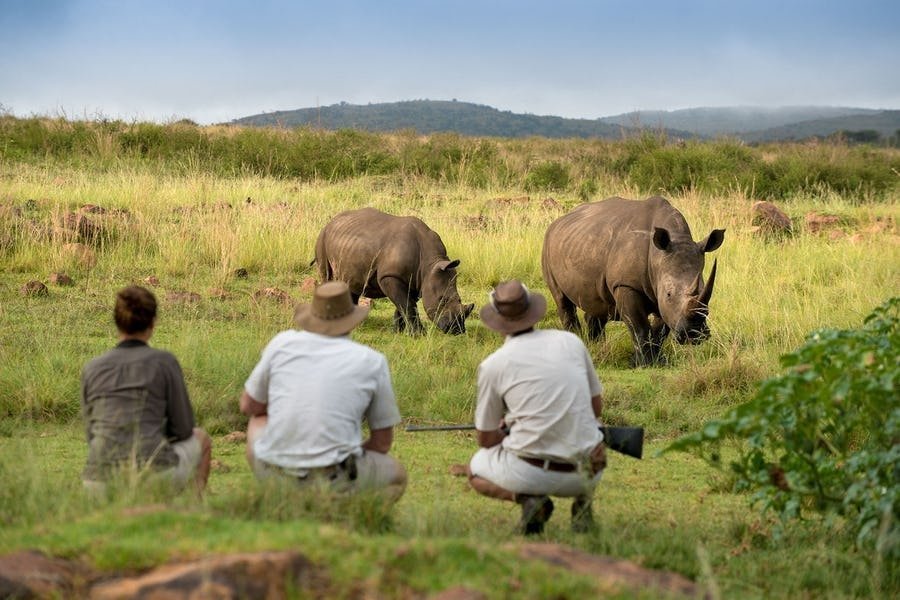
While taking an African safari certainly comes with risks and dangers one might not get on a beach holiday or city break, these risks are definitely worth taking. When comparing the numbers of travelers who make their way to Africa every year with the statistics of disease, accidents and animal attacks, the chances of anything going wrong on an African safari are very low indeed.
Recommended tours
Review & Earn Travel Money
At TripsPoint you have endless possibilities to earn TripsPoint Money - this is your Travel Money your can use to book you next tours and activities everywhere you go.
Here's Space For Everyone
New tours